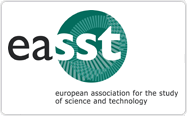Moving Ethnography
Infrastructuring Doubletakes and Switchbacks in Experimental Collaborative Methods
Abstract
In this article, we describe how our work at a particular nexus of STS, ethnography, and critical theory—informed by experimental sensibilities in both the arts and sciences—transformed as we built and learned to use collaborative workflows and supporting digital infrastructure. Responding to the call of this special issue to be “ethnographic about ethnography,” we describe what we have learned about our own methods and collaborative practices through building digital infrastructure to support them. Supporting and accounting for how experimental ethnographic projects move—through different points in a research workflow, with many switchbacks, with project designs constantly changing as the research develops—was a key challenge. Addressing it depended on understanding creative data practices and analytic workflows, redesigning and building technological infrastructure, and constant attention to collaboration ethics. We refer to this as the need for doubletakes on method. We focus on the development of The Asthma Files, a collaborative ethnography project to understand the cultural dimensions of environmental health, and on the Platform for Experimental Collaborative Ethnography, digital infrastructure first built to support The Asthma Files but now available as a community resource for archiving, analyzing, and publishing ethnographic data and writing. A key finding is that different traditions and practices of ethnography require different infrastructures.
Downloads
Published
Versions
- 2021-09-15 (2)
- 2021-06-16 (1)
How to Cite
Copyright (c) 2021 Aalok Khandekar, Brandon Costelloe-Kuehn, Lindsay Poirier, Alli Morgan, Alison Kenner, Kim Fortun, Mike Fortun, The PECE Design Team

This work is licensed under a Creative Commons Attribution 4.0 International License.





